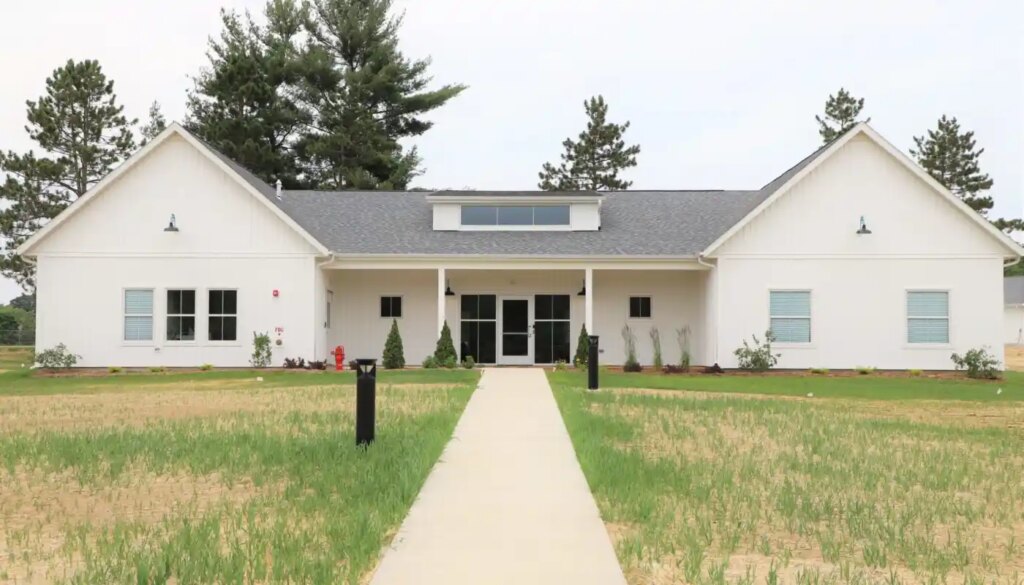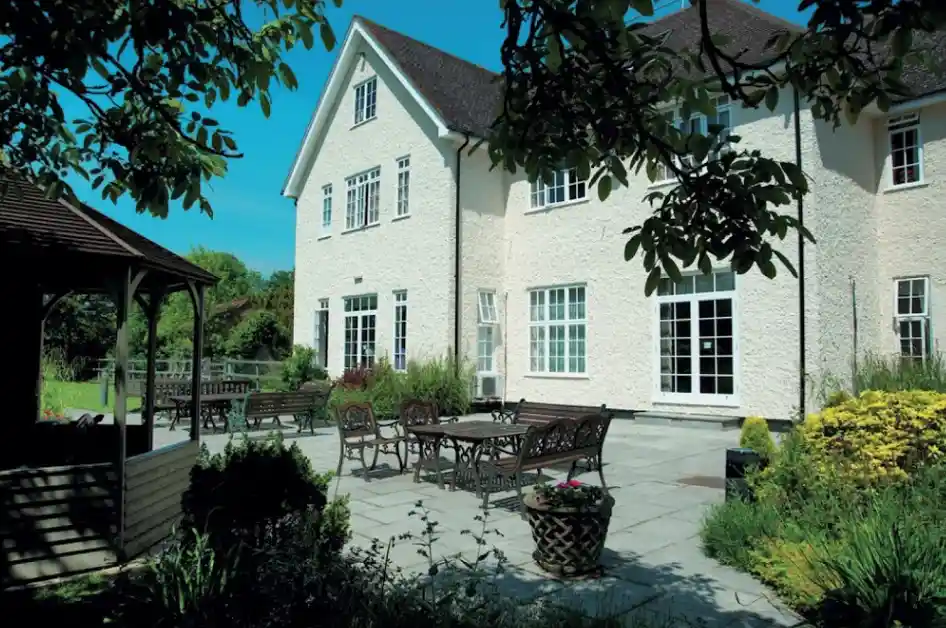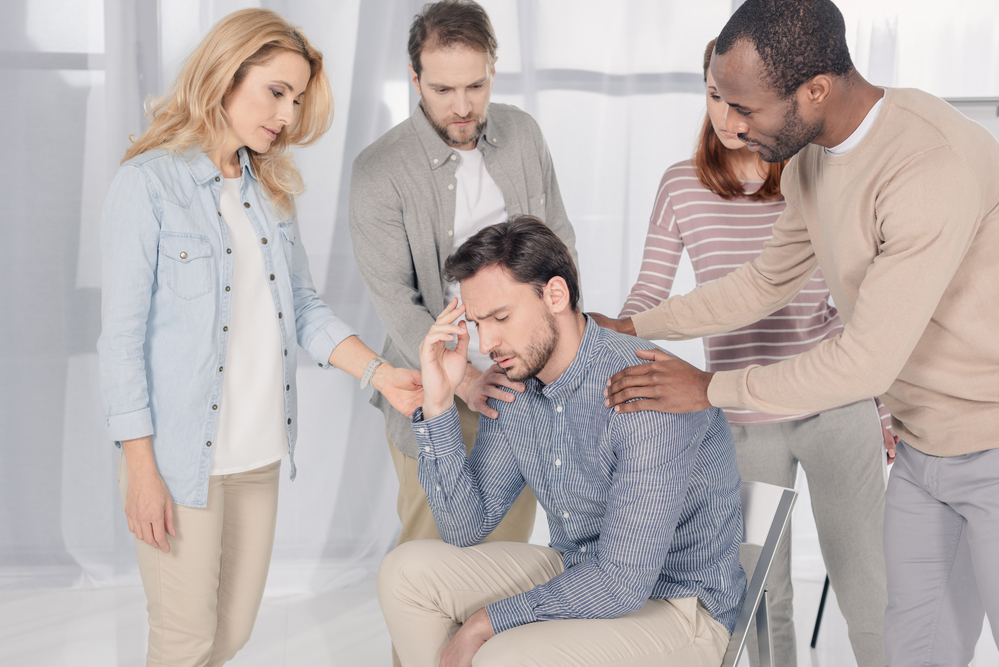





Depression is a pervasive mental health disorder affecting millions of people worldwide. Finding the right depression treatment centers can be a life-changing decision, but navigating through the plethora of options can be overwhelming. This blog post aims to guide you through understanding depression, the importance of seeking treatment, comprehensive treatment approaches, and how to choose the right treatment center for your needs.
Depression is more than just sadness; it is a mental health disorder characterized by persistent and intense feelings of sadness, loneliness, and lack of interest. Identifying the symptoms, such as changes in appetite, sleep, self-esteem, and relationships, is essential in recognizing depression.
Depression has been known to cause alterations in appetite, sleep, self-esteem, relationships, and pain management, impacting both the mental and physical aspects of an individual. Moreover, depression is a major contributor to addiction.

Depression is not a single issue, rather it has many forms. Each type of depression has certain notable symptoms that make them distinct from one another. Signs of unipolar depression may include emotions of sadness, hopelessness, and worthlessness; lack of interest in activities; difficulty focusing; changes in appetite; sleep disturbances; exhaustion; and ideas of death or suicide.
Substance use disorder is frequently observed to coincide with conditions such as depression and can be seen as a type of self-medication.
Common symptoms of depression may include feelings of sadness, tearfulness, emptiness or hopelessness, loss of interest or pleasure in most or all normal activities, sleep disturbances, and angry outbursts, irritability or frustration, even over minor matters.
Self-medication can be hazardous since it cannot be monitored by medical professionals or mental health specialists. Prolonged use of certain medications can alter brain chemistry, potentially leading to chemical dependency and exacerbating the symptoms of depression.

Seeking treatment for depression is crucial to reduce the risks associated with untreated depression, such as suicidal ideation, and reap the benefits of improved physical, mental, social, and emotional well-being. Potential consequences of not treating depression may include suicidal thoughts and a deterioration of physical, mental, social, and emotional health.
Treatment can lead to a decrease in suicidal thoughts and an improvement in physical, mental, social, and emotional health. Most rehabilitation centers offer treatment for mental health disorders such as depression.
Failure to effectively manage depression can result in a variety of negative outcomes, including the potential for developing other health issues, substance abuse, and difficulties in interpersonal and professional contexts. It may also cause physical pain, weakened immune systems, and sleep disturbances.
Untreated depression can lead to an increased risk of suicidal ideation, as well as a significant decrease in one’s quality of life, including their academic, professional, familial, and social functioning. Without the aid of inpatient or outpatient depression treatment, individuals with depression are more prone to succumb to suicidal tendencies.
It is essential to seek treatment for depression in order to gain the advantages of enhanced physical, mental, social, and emotional well-being. New competencies and approaches for managing stress and other challenges can be fostered during depression treatment.
Experiencing loneliness and isolation is common for those suffering from depression; however, seeking treatment can help alleviate these feelings and provide a sense of connection and understanding.
Comprehensive approaches to treating depression involve psychotherapy techniques, medication management, and holistic and alternative treatments. Various treatment approaches can be utilized to help people find relief from their symptoms, incorporating a combination of therapy, exercise, nutrition, and medication (e.g., antidepressants).
Evidence-based and comprehensive approaches to depression treatment are offered by treatment centers like Banyan Mental Health.


Cognitive-behavioral therapy, interpersonal therapy, and psychodynamic therapy are the most commonly used psychotherapy techniques for treating depression. Cognitive-behavioral therapy (CBT) focuses on aiding individuals in recognizing and altering maladaptive thinking and behavior patterns.
Interpersonal therapy (IPT) assists individuals in enhancing their communication and interpersonal relationships. Psychodynamic therapy helps individuals gain insight into their unconscious thoughts and emotions and how they may be influencing their behavior.
Medication management for depression generally includes the prescription of antidepressants, such as SSRIs, SNRIs, tricyclic antidepressants, and atypical antidepressants. Selective serotonin reuptake inhibitors (SSRIs), serotonin-norepinephrine reuptake inhibitors (SNRIs), tricyclic antidepressants, and atypical antidepressants are typically prescribed for depression.
Timberline Knolls Residential Rehab provides medication as part of its treatment plan
Holistic and alternative treatments for depression include acupuncture, massage, yoga, exercise, healthy diet, light therapy, St. John’s Wort, omega-3 fatty acids, and SAM-e. Mindful movement practices, such as yoga, tai chi, and qigong, may also be beneficial in providing relief.
Experiential activities like art, yoga, and dance/movement are offered for female patients receiving depression treatment at Timberline Knolls Residential Rehab.
When choosing a depression treatment center, it’s important to consider factors like location, cost, and services offered, as well as tailored treatment plans that meet individual needs. Locating the appropriate depression treatment center is of paramount importance, as each individual responds to treatment differently, and it is critical to find the center that best suits your needs, goals, and preferences.

When selecting a depression treatment center, it is essential to take into account the type of treatment provided, staff qualifications, location, and associated cost. The type of treatment, whether residential or partial hospitalization, should be considered based on the individual’s needs and preferences.
The qualifications of the staff, including their experience and expertise in treating depression, are crucial in ensuring a high-quality treatment experience. Location is another important factor, as it may impact the ease of access to the center and the support network available during treatment.
Lastly, cost should be considered as it may influence the duration and level of care provided.
Tailored treatment plans are individualized plans that are designed to address the particular needs of the patient. These plans may incorporate psychotherapy, medication management, and holistic and alternative treatments.
Tailored treatment plans for depression can be advantageous as they are tailored to the individual’s particular requirements and conditions, resulting in more effective treatment and improved outcomes.

Navigating the treatment process involves an initial assessment and diagnosis, followed by ongoing support and aftercare. The initial assessment and diagnosis process for depression involves a physical exam, questions about symptoms, and a diagnostic evaluation that includes an interview and a mental health assessment.
The Beck Depression Inventory (BDI) and the Patient Health Questionnaire (PHQ) are commonly utilized tools to screen and assess depression.
The initial assessment and diagnosis process for depression involves a physical examination, clinical interviews, and assessments. Tools like the Beck Depression Inventory (BDI) and the Patient Health Questionnaire (PHQ) are extensively utilized to detect depression and evaluate behavioral manifestations and intensity of depression.
Ongoing support and aftercare for depression may involve a combination of therapy sessions, medication management, support groups, self-care, and continued care after treatment. Adhering to the treatment plan is essential in order to guarantee the efficacy of the treatment and to regulate the signs of depression.
Additionally, it is essential to be aware of any potential signs that may necessitate additional treatment. Social support can provide a positive impact on those suffering from depression, allowing them to feel connected and understood. It can also help reduce the sense of isolation and loneliness, which are often experienced by people with depression.
In conclusion, understanding depression and its various types and symptoms is crucial in recognizing the need for treatment. Seeking professional help from a depression treatment center that offers comprehensive treatment approaches, including psychotherapy techniques, medication management, and holistic and alternative treatments, can significantly improve one’s quality of life. Consider factors such as location, cost, and services offered when choosing a treatment center, and opting for tailored treatment plans that meet individual needs, can ensure the most effective treatment possible. Navigating the treatment process with an initial assessment and diagnosis, followed by ongoing support and aftercare, provides the best chance for a successful recovery and a brighter future.
If you are struggling with depression, it is important to seek help. Speak to your healthcare provider for advice and support.
There are also mental health professionals and organizations available to provide counseling and treatment options. Don’t hesitate to reach out for help if you’re feeling overwhelmed.
Based on available evidence, cognitive behavioral therapy (CBT) is considered to be the best treatment for depression. CBT focuses on changing both negative thought patterns and behaviors that contribute to depressive symptoms in order to reduce their severity or eliminate them altogether.
Depression can be difficult to manage, but engaging in activities that bring comfort and joy such as listening to music, taking walks, or connecting with a higher power are great ways to cope.
Finding small moments of joy can help us stay resilient in the face of difficult emotions.
When depression is severe, hospitalization can help ensure safety and provide intensive treatment. Treatment may include medication, talk therapy or other interventions such as electroconvulsive therapy (ECT). The goal is to reduce the severity of symptoms quickly so that the patient can resume their daily activities.